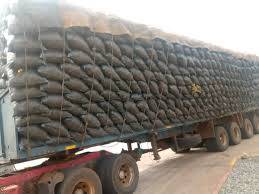“They’re Cutting More Than Trees”: How Illegal Logging and Charcoal Production Are Quietly Killing Ghana’s Savannah
— And why no one seems to care… until the land is gone.
-I remember the last time I visited my grandfather’s old farm in the Savannah zone of northern Ghana.
As a kid, I used to run through the thorny bushes, trip over termite mounds, and sit under the shea trees when the sun got too aggressive. It was wild. Raw. Beautiful.
But last December, when I returned… the trees were mostly gone.
Burnt.
Felled.
Replaced by grey ash and the smell of scorched earth.
“You see what they’ve done?” my uncle said quietly.
“Charcoal people.”
At that moment, it hit me — this isn’t just about deforestation.
It’s about loss.
Loss of tradition. Loss of climate. Loss of control.
-A Crisis Hiding in Plain Sight
At a recent conference, experts raised the alarm: illegal logging and charcoal production are threatening the Savannah Ecological Zone.
You’d think that would make headlines, right?
But nope. It barely made a ripple on social media.
Meanwhile, trees that took decades to grow are being reduced to sacks of charcoal in a matter of hours — all in the name of survival.
(And yeah, maybe greed too.)
-Here’s What I’ve Noticed Lately…
The people cutting these trees aren’t monsters.
They’re mostly poor. Jobless. Trying to feed their families.
They know it’s wrong — but what else do you do when the rains won’t come, the soil is tired, and there are no real job opportunities?
In my experience, when people are desperate, they do desperate things.
So if you're sitting in Accra pointing fingers from your air-conditioned office, you might be missing the point.
-More Than Just Trees
Illegal logging doesn’t just strip forests — it strips identity.
The Savannah isn’t just “land.” It’s a home, a heritage, and a delicate ecosystem that barely survives under the harsh sun.
When we lose the trees, we lose:
Shade and water retention, worsening droughts.
Biodiversity, including endangered animals and medicinal plants.
Traditional economies that rely on shea nuts, baobab, and sustainable farming.
Hope — for future generations who’ll inherit a dust bowl.
And charcoal?
It’s dirty energy. It’s short-term profit with long-term disaster.
But it’s what sells. It’s what people cook with. It’s what keeps the fire burning.
So… we burn.
-The Government Says It’s “Concerned” — But Then What?
Every few years, someone in authority says, “We’ll regulate it.”
They form a task force. They promise to plant trees. They hold a workshop.
Then… nothing.
Meanwhile, trucks packed with illegal timber roll through the night.
Kilns smoke quietly behind small villages.
And the land keeps bleeding.
I could be wrong, but… I think we’ve normalized the destruction.
-So What Can Be Done?
Here’s what I think:
We need real alternatives. People won’t stop making charcoal unless they have another way to earn income. Period.
Invest in clean cooking tech. We can’t keep telling people to stop using charcoal if gas and electricity remain expensive or inaccessible.
Community policing must mean something. Locals should be empowered to protect their own land — not silenced or bribed.
Enforce existing laws. Not in the cities. In the forests. On the roads. In the real world.
And maybe most importantly…
Start listening to the people living in the savannah — not just those talking about it at conferences.
-Final Thought
I keep thinking about that dry patch of land where I used to climb trees as a boy.
Now it’s just smoke and memories.
And I wonder —
When the last tree falls, will we finally realize that we can’t eat charcoal?
Or will it be too late?
-SEO Keywords (naturally included): illegal logging Ghana, charcoal production in Savannah zone, Ghana deforestation crisis, environmental degradation Ghana, Savannah ecological zone threat, climate change Ghana forests, sustainable land use in Ghana.



